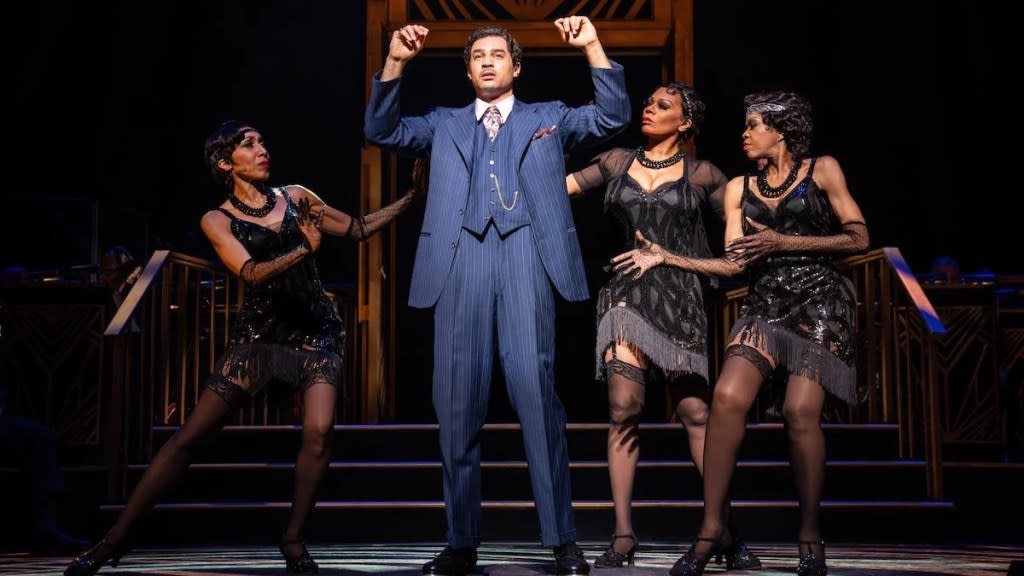‘Jelly’s Last Jam’ Off Broadway Review: How Jazz Was Born, or Was it?

- Oops!Something went wrong.Please try again later.
It’s easy to see why the musical “Jelly’s Last Jam” had a respectable but unprofitable run in its original engagement on Broadway in 1992-93. The show is about an unapologetic racist, who is a Black man. Under the auspices of Encores!, a riveting warts-and-nothing-else revival of that Jelly Roll Morton bio-musical opened Wednesday at the New York City Center.
George C. Wolfe wrote the book and directed the original production, and he never tries to pretty up his subject matter the way makers of musicals are prone to do. In fact, his book seems bent on sticking it to a great Black musician who identifies as Creole and says his family came to America directly “from the shores of France.” Even more delusional, Morton brags a lot about “inventing jazz.”
What makes Morton look down on Black people of a darker hue has everything to do with his very proper grandmother (Leslie Uggams thrills in two brief scenes) not wanting him to hang out in pool halls and brothels where he picks up musical tips from piano players who never heard of Jules Massenet.
We meet Morton on his death bed shortly after he has entered the afterlife and is greeted without much sympathy by someone who calls himself Chimney Man. One of the great stylistic flourishes of this Encores! production is that director Robert O’Hara makes “Jelly’s Last Jam” an extended showdown between Death and Morton, and there could not be two more different performers than Billy Porter and Nicholas Christopher.
Playing the bejeweled angel, Porter is, well, Porter: flamboyant, loud and often downright obnoxious. In the beginning, he nearly wipes the stage with Christopher, who enters with his back to the audience and doesn’t seem to know that he’s being radically upstaged. Fortunately, there’s genius in that approach to playing Morton, who never seems to care what we think of him. Porter demands our attention, Christopher earns it in a slow-burn performance that ends in Morton’s grand self-immolation.
This composer-musician’s rise of fame isn’t dramatized so much as it is told to us. Sometimes, the speeches between Morton and Chimney Man get a little long-winded, but there is always the music to beguile us. “Jelly’s Last Jam” is a weird hybrid. Maybe “Kismet” with its riffs on Borodin comes closest to what’s delivered on stage here. Morton gets the “music” credit, but that music has been artfully structured into songs by Luther Henderson that are performed like jazz classics. Susan Birkenhead’s original lyrics are equally smart and sound as if she snatched them from some magical time capsule. Those songs and additional music composed by Henderson carry the show, and Porter has ample help in the condemnation department by a slinky trio of singing cherubs (Mamie Duncan-Gibbs, Stephanie Pope Lofgren and Allison M. Williams) who sizzle while they censure Morton. Also wonderful are several extended dance numbers choreographed by Edgar Godineaux and Dormeshia.
Wolfe’s book also notably features one of the strangest love triangles ever put onstage. Morton lusts for a feisty club owner (Joaquina Kalukango in fabulous voice) who ends up with his best friend, a very sweet guy named Jack the Bear (John Clay III). It’s not your typical showbiz romance. Far from it, and that’s good news for the musical theater, if not the box office.
The post ‘Jelly’s Last Jam’ Off Broadway Review: How Jazz Was Born, or Was it? appeared first on TheWrap.

